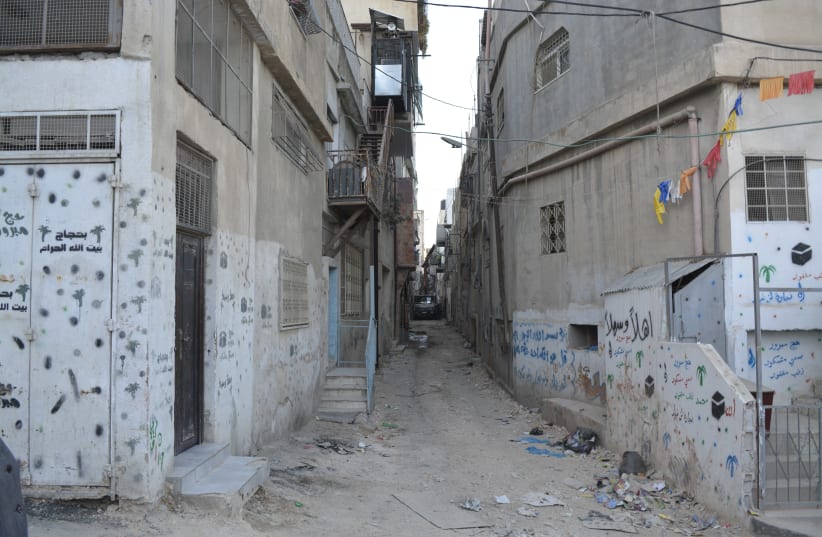(UNRWA in Jerusalem: Anatomy of Chaos English from on Vimeo.)
“Our message is clear,” said Jihad Abu Zneid, a Shuafat resident and member of the Palestinian government. “We will remain in Shuafat and will not relinquish the right of return.”“We live in a critical time in Shuafat for many reasons,” Zneid continued. “Especially after [former Jerusalem mayor] Nir Barkat’s declaration that Israel is responsible for Shuafat, not UNRWA, and his declaration that the right of return does not exist.”In 2018, Barkat said in a statement that UNRWA is a political organization.“Their goal is to maintain refugee status for Palestinians instead of helping them get on with their lives,” Barkat had said.Political instability is one among several issues afflicting the lives of Shuafat residents. The camp is also marked by violence, criminal activities, drug dealing and abuse and poor sanitation.Social worker and investigative reporter David Bedein, one of the leading voices in the fight for the UNRWA reform initiative, claimed that UNRWA curriculum indoctrinates school children to devote their lives to the Palestinian “right of return” by force of arms.Bedein proposed a series of reforms for UNRWA operations in Shuafat, including: cancellation of UNRWA’s school curriculum, which according to Bedein is based on jihad, martyrdom and paramilitary training; dismissal of employees affiliated with Hamas; introducing UN High Commissioner for Refugees standards to UNRWA to advance the resettlement of fourth- and fifth-generation refugees from the 1948 war, among other measures.“We live in a lawless place, an area of chaos,” Zneid said. “Eighty percent of all buildings were illegally built, without any supervision and engineering.”The power struggle between Israel and UNRWA in Jerusalem's refugee camp
Political instability is one among several issues afflicting the lives of Shuafat residents.
